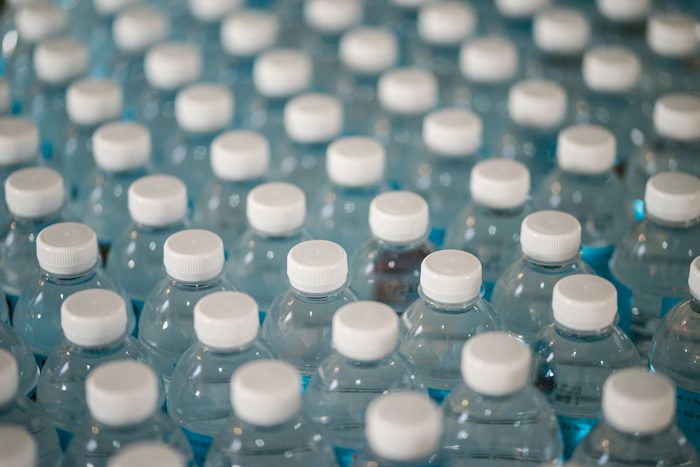A significant amount of waste is generated in contemporary workplaces, including plastic wrappers and various small- to medium-sized electronic gadgets. Proper segregation and recycling of these items can be challenging at a Calgary bottle depot (or other regions). Fortunately, scientists have developed methods to transform plastic wastes into oil, fuel and other valuable resources. The plants involved in converting plastic to energy and other resources could create about 39,000 new job opportunities and generate nearly $9 billion in economic activity. This initiative has the potential to boost the economy and offer innovative methods for plastic reuse, contributing positively to environmental conservation. In this post, we will discuss different ways to turn plastic into valuable resources:
Ways To Turn Plastics Into Valuable Resources
Each method contributes to reducing the environmental impact of plastic waste and promotes sustainable resource use. Turning waste plastics into useful resources involves several innovative ways:
- Pyrolysis
Pyrolysis is a groundbreaking process where plastic is heated without oxygen, ingeniously breaking it down into valuable byproducts such as oil, gas, or waxes. These versatile products find utility as not only fuels but also as crucial raw materials for diverse chemical processes. The pyrolysis method employs extremely high temperatures, ensuring the efficient decomposition of plastic, unlocking opportunities for sustainable resource recovery. This environmentally friendly approach not only facilitates material reuse but also contributes to reducing the environmental footprint associated with plastic waste. Through pyrolysis, we embark on a transformative journey towards fostering a greener and more sustainable future.
- Hydrothermal Processing
This innovative approach involves heating polypropylene in water inside a specialized reactor, subjecting it to temperatures ranging between 380-500 degrees Celsius. Within this controlled environment, the combination of intense heat and pressure effectively breaks down the plastic, transforming it into a valuable and versatile form of oil. This pioneering method showcases the potential for sustainable plastic waste management by utilizing advanced technologies to convert polypropylene into a resource that can be further employed in various applications, contributing to a circular and eco-conscious approach in dealing with plastic materials.
- Biodegradation
Newer plastics are engineered to be biodegradable, breaking down into water, carbon dioxide, and biomass when exposed to microorganisms. This design aims to mitigate plastic pollution, promoting environmental sustainability.
- Converting Plastic To Hydrogen
In a groundbreaking discovery, researchers devised a method to convert plastic waste into hydrogen fuel, a potential energy source for vehicles. Utilizing a light-absorbing material in sunlight, they efficiently broke down plastic, yielding hydrogen gas as a promising avenue for sustainable energy solutions.
- Chemical Recycling
A revolutionary method disassembles plastics at the molecular level, reverting them to their original monomers. These monomers are then re-polymerized to create new plastics, offering the potential for indefinite recycling and contributing to a more sustainable and circular approach to plastic use.
- Composite Materials
At your local bottle depot, waste plastics can be blended with other materials to produce versatile composites. These composites find applications in a range of products, from automotive components to consumer goods, showcasing an innovative and eco-friendly approach to recycling and repurposing plastic waste.
- Converting Plastic To Crude Oil
In a groundbreaking initiative, researchers transformed plastic bags into fuel through a pyrolysis unit. The process yielded plastic crude oil (PCO), which was further distilled to generate gasoline and two distinct types of diesel. This innovative approach contributes to addressing plastic waste while producing valuable fuels.
- Converting Plastic To Sulphur Fuel (Plastic2Oil)
If you search for a “bottle depot near me” and visit their specified bottle depot hours, you will learn how they turn plastic into ultra-low sulphur diesel using minimal energy. They use discarded plastic as feedstock and the processor’s off-gases as fuel.
- Conversion To Fuel
Technologies like gasification or pyrolysis can convert plastics into synthetic gases or oils. These fuels can be used in various industrial applications or for generating electricity.
- 3D Printing Filaments
Waste plastics can be processed into filaments used in 3D printing, creating a loop of reusability.
- Building and Construction Materials
Plastic wastes are recycled effectively at Bottle Depot in Calgary (or where you live). It is then used to make durable building materials like bricks, paving stones, or panels.
- Packaging Materials
Recycled plastics are often turned back into new packaging materials, reducing the need for new plastic production.
Conclusion
The transformation of waste plastics into valuable resources at the designated bottle deposit hours represents a crucial step towards environmental sustainability and resource efficiency. Techniques like recycling, pyrolysis, chemical recycling, and conversion to fuel are innovative ways to repurpose plastic waste, reducing its environmental impact. These methods help manage the growing plastic pollution problem and open new economic growth and job creation avenues. By converting waste into valuable materials and energy, these processes contribute to a circular economy where resources are reused and recycled, minimizing waste and conserving natural resources. Effectively converting waste plastics into valuable resources is essential to modern environmental stewardship and sustainable development.

